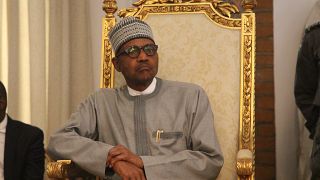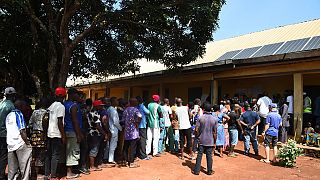Nigeria
Nigeria's President Muhammadu Buhari has refused to approve an amendment to the electoral law, which includes the organization of primaries to designate candidates for the presidential election scheduled in fourteen months.
In a letter to Senate President Ahmed Lawan, read out in Parliament on Tuesday, Buhari said "the proposed amendment as it stands is a violation of ... democracy, which is characterized by freedom of choice.
According to President Buhari, the adoption of direct, open primaries would significantly increase the cost and insecurity of monitoring elections, as well as marginalize small political parties.
He said it would put additional pressure on the economy and security agencies of Africa's most populous country, which is already plagued by high inflation and insecurity.
"Such a large turnout without effective security coordination will also lead to intimidation and disruption, raising credibility concerns about the outcome of these elections," he added in the Dec. 13 letter.
The amendment also calls for allowing electronic voting to facilitate the collection and transmission of results, thereby increasing the transparency of the elections.
But in December 2018, Buhari had already refused to approve an amendment to the electoral law that sought to allow electronic voting in the upcoming presidential election, held two months later.












00:46
Egypt and Nigeria warm up for international friendly ahead of AFCON kickoff
02:06
ECOWAS rejects Guinea-Bissau transition, warns of sanctions
01:00
Pix of the Day December 12, 2025
01:00
Videos. Pix of the Day: December 10, 2025
01:24
Benin government says short-lived coup left casualties on both sides
Go to video
Sahel alliance warns Nigeria it will 'neutralise' any unauthorised aircraft in its airspace